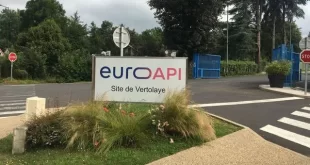Job title: Post doctoral position in Simulation/co-simulation/emulation to model systems and threats
Localisation : PALAISEAU (France)
Entity / Service: Télécom SudParis / RST Department
Position of supervisor: Director RST Department
Category and job occupation in IMT: II – P
Category in the public service: A
1.5 year fixed term contract
ABOUT TELECOM SUDPARIS
Telecom SudParis is a public graduate school for engineering, which has been recognized on the highest level in the domain of digital technology. The quality of its courses is founded on the scientific excellence of its faculty and on teaching techniques that emphasize project management, innovation and intercultural understanding. Telecom SudParis is part of the Institut Mines-Telecom, the number one group of engineering schools in France, under the supervision of the Minister for Industry. Telecom SudParis with Ecole Polytechnique, ENSTA Paris, ENSAE Paris and Telecom Paris are co-founders of the Institut Polytechnique de Paris, an institute of Science and Technology with an international vocation.
Its assets include: a personalized course, varied opportunities, the no.3 incubator in France, an ICT research center, an international campus shared with Institut Mines-Telecom Business School and over 60 student societies and clubs.
THE POSITION IN THE ORGANIZATIONAL STRUCTURE:

MISSIONS :
The CERES project takes place within the Interdisciplinary Center for Defence and Security Studies (CIEDS) of Institut Polytechnique de Paris (IP Paris). In particular, the project aims at contributing to different system security phases: 1) specification of the expected security properties to define complete policies, i.e., able to be deployed and ensuring a complete risk coverage; 2) deployment of policy enforcement points; 3) verification of the mechanisms efficiency through a rigorous and reproducible validation approach, that is relying on a methodology generic enough to be applied to several security mechanisms, ensuring stability through time and enabling the comparison of results. Case studies may cover both a constellation of connected devices or a building information and management system. For each of them, several layers of modelisation are considered from abstracting operations to demonstrating an isolated prototype, and even its integration to a complete system (long-term objective).
The postdoctoral researcher work will focus on CERES workpackge 1, which aims at modeling both systems and threats to systems, in the context of the security study of complex systems. We will later rely on existing formalisms (e.g., attack graphs) enriched with the produced formalisms and adapted to the case of complex systems. We will consider the modeling of testbed environments and attacks, going from abstract descriptions extracted from threat intelligence to concrete executions such as the deployment of a botnet into a target system.
The hired researcher will deliver the following products:
- participation to building the CERES platform on a building management system/smart building use case. The contribution may take several forms, depending on the set of skills of the researcher: software development (tools, probes); dataset construction; environment simulation (tools, models, etc.);
- a state-of-the-art survey report of attack modelling and testbeds, with a particular focus on their integration in evaluation methodologies. This report may be later published in ranked scientific conference or journal article;
- a prototype implementating the evaluation methodology of complex systems, based on the use case implemented in the CERES platform.
The hired researcher will get access to a number of means including a workstation, bibliographical databases, computing resources, the CERES platforms, as well as, if needed, other IP Paris equipments. The hired researcher will be supervised by a team of faculty and engineers at IP Paris with a broad and diverse set of skills, including cybersecurity, networks, cyber-physical systems, model-driven engineering, modelling.
ACTIVITIES :
The activities focus on the study of diverse modeling approaches and formalisms to find the best tradeoff between the realism of the systems and attacks representation on one hand, and the feasibility of the simulations on the other hand:
• state of the art on architecture description langages for modeling building managment systems, including security aspects
• state of the art of attack modeling and formalisms
• state of the art of assessment/certification methodologies
• state of the art of testbed technologies
• development of models and tools
• definition of a data-driven methodology
TRAINING AND SKILLS:
Level of training and / or experience required:
- PhD or Doctorat for less than 3 years
Essential skills, knowledge and experience:
- Experience in modelling and/or simulation
- Knowledge in modelling langages and formalisms
- Knowledge in network security
- Knowledge in industrial networks, or at least in embedded computing/electronic (incl. IoT)
- Skills in programming
- English written and spoken
Advantageous skills, knowledge and experience:
- Skills in systems administration
Abilities and skills:
- Rigor
- Autonomy
- Teamwork
TO APPLY:
Please send a cover letter, a copy of your Ph.D diploma and a resume (CV) before March 16th, 2022, at this URL:
Web Site: https://www.telecom-sudparis.eu/
Information of the candidate on the processing of personal data: https://bit.ly/2QeOZhl
Job Features
| Job Category | Teaching and scientific research, Postdoctoral |
 Etudes Non Stop Study Non Stop
Etudes Non Stop Study Non Stop




